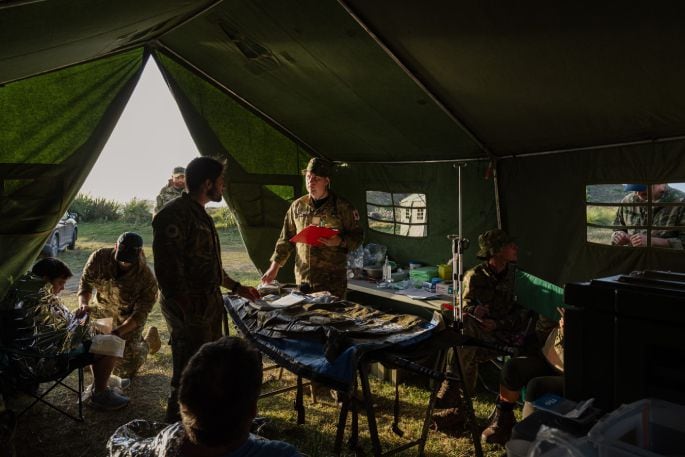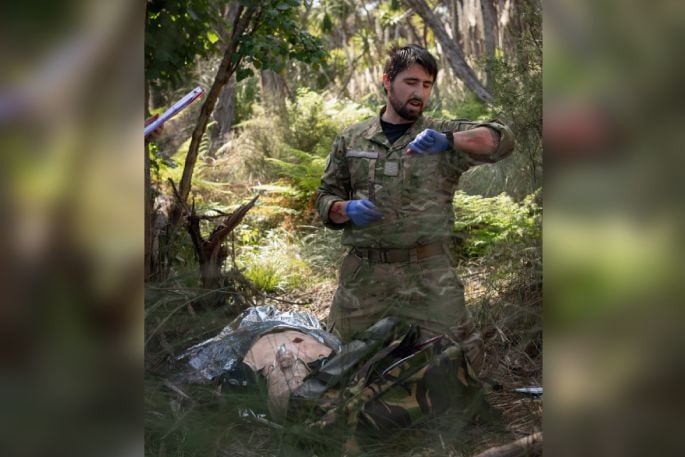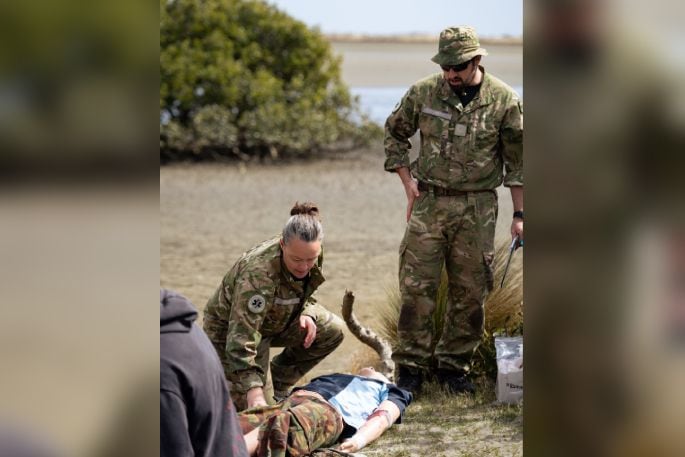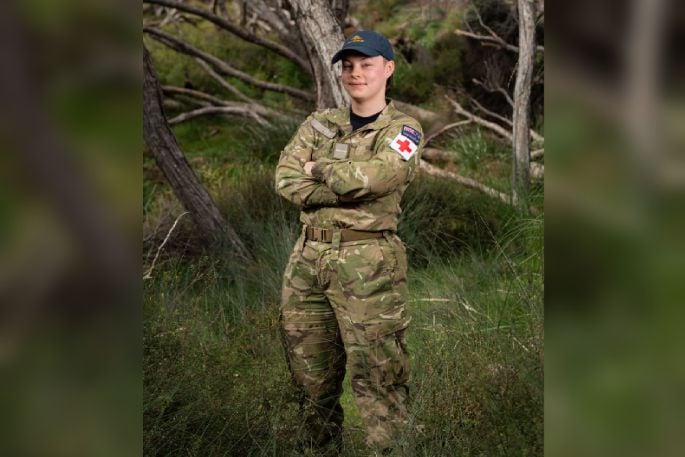Fourteen Royal New Zealand Air Force medics recently put their skills to the test at Kaipara weapons range north of Auckland.
The week-long Exercise Starlight featured a range of scenarios personnel may encounter, as part of humanitarian assistance and disaster relief, either on deployment overseas or in New Zealand.
“We were looking at what kind of situations medics would need to respond to, if an earthquake struck a Pacific Island, and we needed to tend to civilians and personnel,” said Corporal Kelly Sunnex, who oversaw the exercise.
“One day we were responding to a road being blocked, people being crushed under fallen trees and another to a motor vehicle accident. We also had a focus on technical skills and survival training, such as setting up camp.”

Corporal Kelly Sunnex was the officer in charge of the week-long Exercise Starlight at Kaipara weapons range. Photo / RNZAF
Medics from RNZAF Base Auckland, Ohakea and Woodbourne participated in the exercise alongside a nurse from the Royal Air Force.
“The medics had a range of experience, with some still on the New Zealand Defence Force medic course, so the experience to learn from other medics was really valuable,” said Sunnex.

Fourteen Royal New Zealand Air Force medics put their skills to the test at Kaipara weapons range. Photo / RNZAF / Jalesa Nomani
Leading Aircraftman Echo Weeks, age 23, from Katikati, recently graduated as a medic and said this was the first time participating in a full-medical exercise, after being posted to RNZAF base Auckland.
“It was awesome, I really enjoyed it. I think the idea of having different scenarios brought a different perspective every day,” said Weeks.
“The combination of trauma and primary health care was really useful. In my role I do a lot of primary care, but in a field environment it’s much more challenging, as there are limited supplies, and it requires more critical thinking and social awareness.”

Corporal Jack O'leary during his individual scenario assessment. Photo / RNZAF / Jalesa Nomani
Each day a different team had the chance to be part of the directing staff, allowing personnel to build the skills needed to run scenarios, as well as be part of the response.
Personnel also got the chance to build relationships and share experience with medics from other RNZAF bases, which Sunnex said was invaluable.
“It was an awesome exercise. Everyone clinically did really well, worked as a team and we got to build relationships with personnel from Ohakea and Woodbourne. Everyone was very switched on.”

Corporal Kelly Sunnex attending to two injured personnel during her individual scenario. Photo / RNZAF / Jalesa Nomani

Sergeant Nadia Currie during her individual scenario assessment. Photo / RNZAF / Jalesa Nomani



0 comments
Leave a Comment
You must be logged in to make a comment.